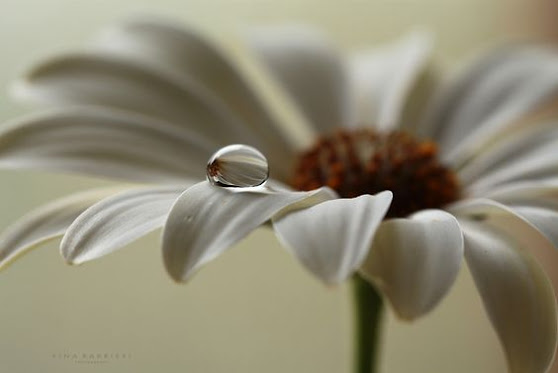Chapter – 31 – Vivekachoodamani - 301 – 310
Preceptor speaks “The supreme bliss/Bhramanandham/Athman
in the Jeeva is constantly under the clutches of the three hooded serpent-like
Triguna/Sathvik, Rajasik, and Thamasik Vasana of the Jeeva. The fearless Sadhaka undertake extreme
austerities and Tapasya, observance of celibacy, vow, spiritual and religious
rites, achieve the knowledge in Shastra and Upanishdh, and with the knowledge
of Athman like a powerful sword cut off the three hooded serpents of Triguna, immerses
in the supreme bliss. Soon, the Bhramanandham/supreme bliss in the Jeeva spread
great radiance. Therefore, the
Bhramanandham is the absence of ‘Ahamkara’/body consciousness and I
consciousness, ‘Vasana/Triguna such as Rajasik, Sathvik and Thamasik nature in
the Jeeva. The Sadhaka get rid of impurities with the constant practice of
austerities, even the tiny part of the poison
like ‘Ahamkara/ego is enough to destroy the hard work of the Sadhaka, and throw
out of the Athmasakshathkara, like the single drop of poison in the body would put
the Jeeva at a greater risk. The two
fruitful deeds to achieve Moksha/ Mokshahethu are 1)
firstly, abandon the ‘I’ and body consciousness 2) abandon all the Karma
performed out of ego. The ‘Ahamkara’ is the cause for the attachment to
Prakrithi/material matters, people, money, wealth, richness, fame, etc. that has
impermanent nature undergoes constant transformation and ruin; ultimately it
would hurl the Jeeva into grief and distress. The ignorant Jeeva who are afar
from the “Athmaswaroopa’/knowledge of self’, chases after material well-being, get
attached to the family, children, wife, companion, relatives, etc. that are under
the constant influence of Jara/aging, Vyadhi/illness, and Marana/death, that could
cause separation of grief, in this way, the ignorant Jeeva continues undergoes
sufferings and sorrows of the worldly existence, until and unless gets rid of ‘Ahamkara’.
The Jeeva who is drenched in the interest in worldly matters and bondage/Samsarabandham, and ‘Ahamkara’ gets driven away from the Athmathaththva/Paramarththa. The learned get rid of interest in worldly
matters and bondage, and contemplate upon that Sath – Chith – Anandhaswaroopa Paramathma
Parambhramam resides as a soul, that is Nithyamuktha, pure, free from afflictions, and omnipresent.
The Sacchidhananswaroopa Paramathma cannot be perceived while chasing for the
material pleasure. The ‘Ahamkara’ in the Jeeva work like a thorn that pierced
on the throat while consuming the meal; it is an evil enemy of the Sadhaka, it
can be destroyed with the Athmajjana like a powerful sword. The successful
Sadhaka/ Jeevanmuktha get rid of interest in worldly matters, bondage and
Ahamkara, and permanently take pleasure in the Kingdom of Athmanubhoothi, they
get rid of interest in Anathmavasthu/Prakrithi, achieves the knowledge in
Paramartha Thaththva, get rid of impurities, Ahamkara, Kama, Krodha, Lobha,
Moha, Madha, and Mathshcharya, and immerses in the contemplation and meditation
upon the supreme Lord, ultimately achieve the supreme state of Nirvikalpa
Samadhi/transcendental state. The Ahamkara is a vicious enemy of the Jeeva, even
a minuscule size of it is enough to bring down the entire hard work into the drain,
like the dark clouds spread across the vast sky, therefore the successful Sadhaka
strive hard to get rid of it completely and do not allow them to crop up, with
the constant practice of austerities, meditation, and contemplation. The successful
Sadhaka does not give a single chance for the interest material matters, or
bondage sprout in their lives, those are considered as ‘Vishayavisha’/toxic poison,
are like causes to develop fresh leaves even in the dried plants. The Mahathma
immerses in the contemplation of Paramathma Parambhramam do not take interest
in material matters or Dheha/body, in the same manner, the ignorant Jeeva who
take immense pleasure in the worldly matters, richness, wealth, fame, possession
etc. do not achieve ‘Athmabodha’. Therefore it is evident that the interest in
worldly matters and bondage causes due to the ‘ignorance’/lack of knowledge of ‘self’
and Ahamkara.”
Bhramanandha Nidhir Mahabalavathahankara
Ghorahina | Samveshtyathmani Rakshyathe
Gunamayaishchandai Sthribhir Masthakai: | Vijjanakhya
MahasinaShruthimatha Vicchidhya
Sheershathrayam | Nirmoolyahimimam Nidhim Sukhakaram Dheeroanu Bhokthum Kshama: ||
Yavadhva Yath Kinchith Vishadhosha
Spoorththirasthi Cheth Dhehe | Kathamarogyaya Bhaveth Thadhvadhahanthi Yogino Mukthyai ||
Ahamoathyantha Nivrithya Thathkritha Nanavikalpa Samhrithya | Prathyaktha
Thaththva Vivekadhi Yamahamasmeethi Vindhathe Thaththvam ||
Ahankare Karththaryahamithi Mathim Muncha Sahasa | Vikarathmanyathma Prathiphalajushi Swasthithimushi |
Yadhadhdhyasath Praptho Janimrithi Jaradhukha Bahula |
Pratheechashchinmoorththe Sthava Sukhathano: Samsrithiriyam ||
Sadhaikaroopasya Chidhathmano Vibhor Anandhamoorther Anavadhya
Keerthe: | Naivanyadha Kvapya Vikarinasthe
Vinahamadhyasa Mamushya Samsrithi: ||
Thasmath Ahanakaramimam Swashathrum BhokthurGalekandakavath Pratheetham |
Vicchidhya Vijjana Mahasina Sputam | Bhunkshvathma Samrajyasukham Yadheshtam ||
Thathoaha Madher Vinivarththya Vriththim
| Samthyaktharaga: Paramarththalabhath |
Thooshnim Samaswathma Sukhanubhoothya | Poornathmana Bhramani Nirvikalpa: ||
Nigrihya Shathrorahamo Avakasha:
Kvachinna Dheyo Vishayanuchinthaya | Sa Yeva
Sanjeevana Hethurasya| Praksheenajambeeratharorivambu ||
Dhehathmana Samsthitha Yeva Kami |
Vilakshana: Kamayitha Kadham Syath |
Athoarththa Sandhana Parathvameva | Bhedhaprasakthya Bhavabhandhahethu: ||
